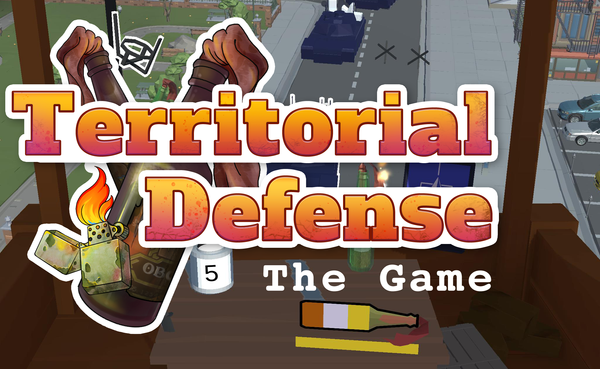Sugar Generation

I remember my parents telling me about how they got candies on the holidays, birthdays, and how special it always was. How they actually used to melt sugar on the spoons to make caramel. And it got me thinking - we significantly increased consumption of sugar in the recent decades. And that's fine, we live better lives, richer lives, more things got much more accessible than it used to be. But how did it change us?
What is it in sugar so attractive? Of course, we can talk of calories, of carbohydrates and how kids love it. But in simple terms, sugar makes stuff sweet, makes it more enjoyable. Makes life brighter. Or, as a smart person would say:
So, dopamine. In easy access. That nowadays is being added everywhere. Even in products you wouldn't expect it, like ketchup. Or your "low-fat" yogurt. When I started baking, I was shocked with the amount of sugar needed for a lot of stuff.
I stopped using added sugar for my drinks long ago – like tea, or coffee. And now, if do add some – it taste too sweet, I am losing the details of the actual flavour. The thing is, once you drink tea with a single teaspoon of sugar it becomes more sweet. But after a while, it stops feeling that way. And you add two. Then three. Because your tolerance changes and with it, to get the same result, you need to constantly raise the dose.
Sounds dangerously similar to some other things, right?

But then I started thinking of other aspects of modern time. For example, filming industry. If you will try to compare the films premiered today to twenty years ago, you can find a lot of similar titles. But the content have changed. It contains much more explosions, sex, shootings, they are much more packed with action, with polished visuals and extreme emotions. And very often they have a bit less deep story, but let's not go there. It seems it all started to crystallise with the rise of Marvel – fancy costumes, a lot of action, heroes, the whole world always at stake, it's always about pure evil and pure good. Seems like film production found their "sugar". They found out how how to turn your senses to max, they got the technology to captivate your attention, and give you pure entertainment. And many people now got quite hooked by it. It's much harder to keep focus for the longer and slower film, with more realistic, but less polished visuals. Now you need more action, more polished visuals, perfect ABS and more extreme emotions! The stakes should be all-time high. And with this it doesn't matter the details. It really doesn't matter how good the story is for a big blockbuster in a famous franchise – people will go there for getting the same emotions that they had before.

But I think what got the most traction recently is video game industry. In the beginning of the industry it was much more about enthusiasts experimenting with the new capabilities of the technology, playing around them and dreaming of creating new worlds. But with the growth of popularity of the thing and accessibility of the technology, the worst that could happen to it happened - it started to earn a lot of money. And with money it started to attract different type of people there. It changed the industry dramatically and with it it changed games.
And how does it contribute to the life of the modern society? When you play a game – you perform different types of operations in order to complete quests and achieve goals in a controlled and limited environment, in a limited and reasonable timeframe. In other works, you complete simple tasks, often. And your brain does not see much of a difference to a digital or real world. So you get rewards for the completion - dopamine. Every time you complete a quest, unlock an achievement, and so on – you feel good. And this feeling is addictive. Especially comparing to the real life – where things like work demand a lot of work, time and effort. So many people get that dopamine far less often. And the game actually fills you with joy and feeling of worthiness.
And then analytics kicked in – now companies constantly learn how to optimise the delivery of the dopamine to keep you hooked for as long as they can. Because they want your money. Free-to-play games are the top predator among the species in mastering the dopamine addiction. In the end, they can suck the money out of you indefinitely, even if you never consider yourself a gamer. And that's why single-player once-sold games are not that interesting for the big corporations anymore. Their earning are much more capped. And the new generations of game development leader are not gaming enthusiast anymore, but financial directors. And their main asset is their analytics department. But I got sidetracked into my matured frustration with this world. And this is a different topic entirely.
What I meant to say, is that games also found their "sugar". They know how to maximise your body reaction to the game, how to make you addicted to it.
And from the entertainment we can go further... Into politics.

Because modern democratic states also found their "sugar". It's called populism. Politicians in every progressive country of modern democracy from Poland through United Kingdom and to United States of America found out that people have weak focus, short memory and love for sweat words. So you can be unreasonable, promise to solve all their problems and get away without delivering it. And it's all also bullet proofed with media and analytics. Using analytics and big corporations like Meta or Google they can identify what's bothering people to come up with convenient promises. And then with media they can make it look like something is changing with half-truths and half-lies and then distract you from remembering how they actually lied to you before.
"Sugar" in politics was not nearly discovered recently – it's plain lies. It's been there since forever. People always fall for sweet lies of those in power. But today you can do that looking absolutely honest. It would be reasonable to assume that with the time of internet and free media it would harder to go away with a lie, but in reality – it's completely the opposite. The amount of media manipulation today is astonishing. Media controls peoples thoughts and people with money know that.
That's why we see the rise of populists in all the parts of the world. People who promise simple solutions for complex problems and voters fall for it. Some manage to stay in power and get elected times and times again no matter what.

I think that our addiction to different types of "sugar" and the never-ending dream of sweet life should come to an end sooner or later. Because the same way as with the tea – we are loosing too many details. And it is backfiring at us right now.
The question is, how to get out of this trap and will we manage without falling into a new dark age.




